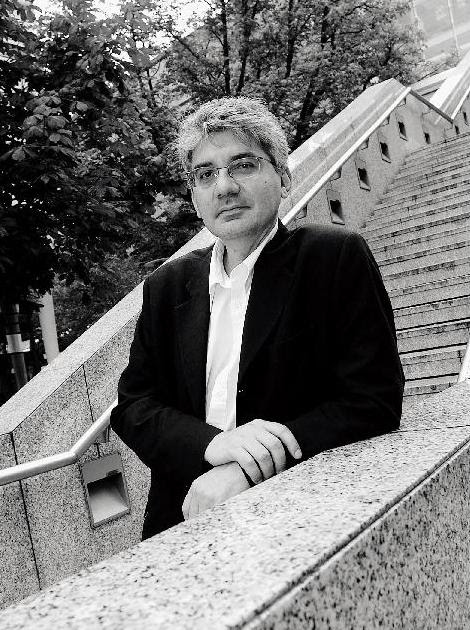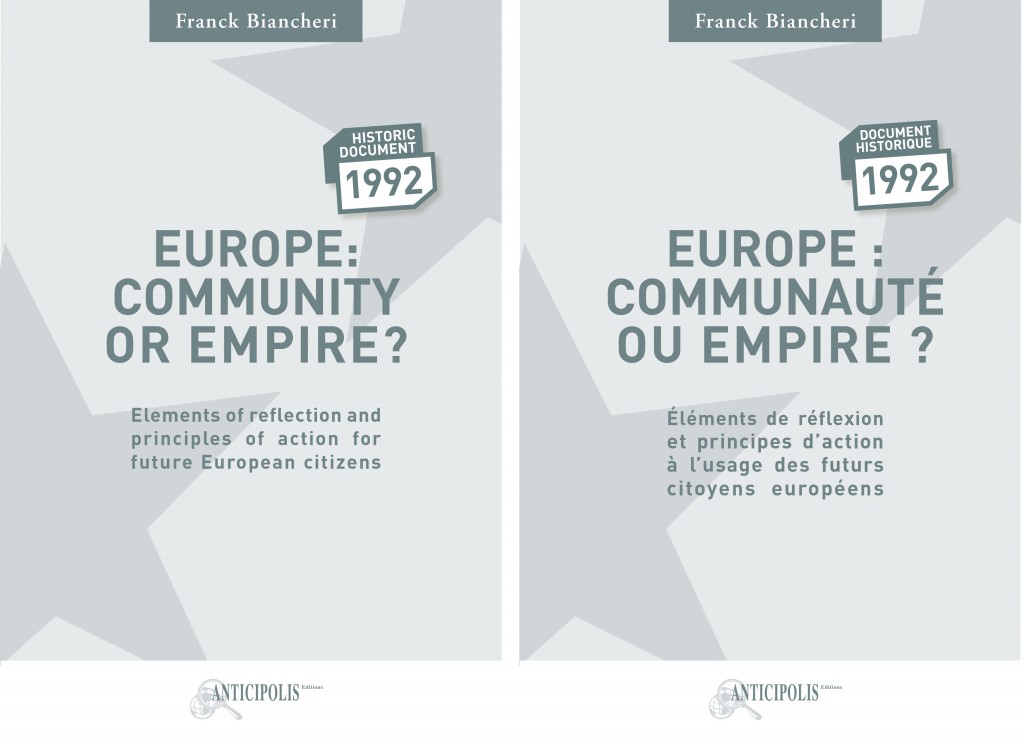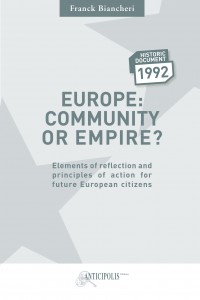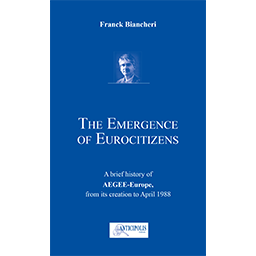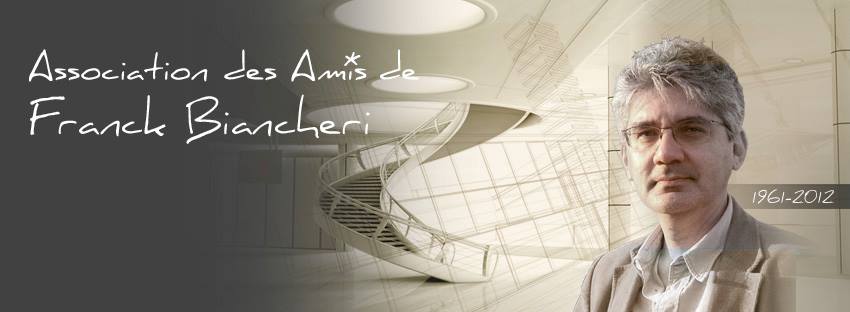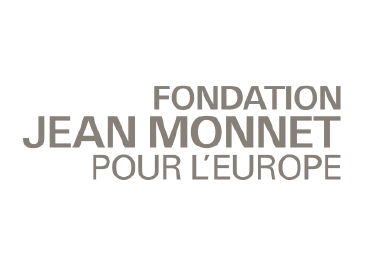The current lack of respect for this diversity steadily increases the number of people worried about the Community process, even starting, as evidenced by the difficulties encountered by the ratification of the Maastricht Treaty, in winning numbers of young people and pro-Europeans
[dropcap]P[/dropcap]lurality is not the difference, because it is the multiple expression of a common identity, whereas difference is the affirmation of an absence of the latter. This is why diversity is generally embodied in methods rather than in objectives. It represents the other face of the European identity, a complement to unity.
To respect it is to affirm that we are European because we are French, German, Italian … and not European instead of being French, German, Italian … To respect it is to affirm that our European identity is unknowable, a forever foundation of our national identities, which can only take shape through our national, regional and local identities and cultures. To respect it is to assert that Europe is always behind us, never ahead of us. It is the backbone allowing us to move forward, the horizon allowing us to discover and invent. To respect it is to assert that the individual does not exist if he is fragmented within immense communities, that he needs intermediate communities to make him reach the consciousness of belonging to the broadest. And in order to really belong, he must also be able to act and really influence. Without intermediate communities he can do nothing, since he would drown in the masses. To respect it is not only to affirm it, but above all to imagine the operational instruments of its preservation.
It is enough to know what it is. Being the exact counterpart of the concept of European unity, European diversity is the affirmation of the difference in the forms taken by our common identity. If unity is our strength, diversity is our wealth. Thus, by preserving it we, above all, implement the democratic procedures within the Community process and differentiate the objectives from the methods (the substance from the form) in order to enable each community to contribute in its own way to the common work.
Thus, when a real common education policy is implemented tomorrow, there will be no need to impose a framework of application. The objectives in terms of common curricula, student exchanges, integrated curricula, meetings of school children and high school students, etc., are set commonly, whilst the methods of implementation and the responsible bodies must be chosen by each people: if the French remain attached to the concept of National Education, they will entrust all this to their national ministry; if the Germans wish to preserve the regional dimension, they will entrust it to the ministries of the Länder. Of course, from the administrative point of view, one would think that this will be more complex to manage at the Community level. This is false. To think so, is to ignore three points:
- without respect for diversity, there will simply never be a common education policy;
- without respect for diversity allowing the populations to choose the appropriate operational level, the administration of the policy will rapidly become inadequate and therefore ineffective;
- without respect for diversity, allowing the populations to choose the operational method which suits them, the Community process will face increasing opposition.
Thus, a methodology of respect for diversity is established by creating democratic Community procedures from the bottom up; by distinguishing between common objectives and methods of choice; by non-imposing operational levels chosen by the populations concerned. This methodology is similar to the network model.
The current lack of respect for this diversity steadily increases the number of people worried about the Community process, even starting, as evidenced by the difficulties encountered by the ratification of the Maastricht Treaty, in winning numbers of young people and pro-Europeans.
[dropcap]E[/dropcap]urope: Community or Empire? Elements of reflection and principles of action for future European citizens, by Franck Biancheri, 1992
Order the book here:
» Editions Anticipolis (or here » AAFB BOOKSHOP)
Le non-respect actuel de cette diversité accroît régulièrement le nombre des inquiets du processus communautaire, commençant même, comme le prouvent les difficultés rencontrées par la ratification du traité de Maastricht, à gagner les rangs des jeunes et des proeuropéens.
[dropcap]L[/dropcap]a pluralité n’est pas la différence, car elle est l’expression multiple d’une identité commune, alors que la différence est l’affirmation d’une absence de cette dernière. C’est pourquoi la diversité s’incarne généralement dans les méthodes plus que dans les objectifs. Elle représente l’autre facette de l’identité européenne, complément de l’unité.
La respecter, c’est affirmer que l’on est Européen parce que l’on est Français, Allemand, Italien… et non pas Européen à la place d’être Français, Allemand, Italien… La respecter, c’est affirmer que notre identité européenne est inconnaissable, soubassement à jamais introuvable de nos identités nationales, qui ne peut prendre forme qu’à travers nos identités, nos cultures nationales, régionales et locales. La respecter, c’est affirmer que l’Europe est toujours derrière nous, jamais devant. Elle est le point d’appui qui nous permet d’avancer, l’horizon qui nous autorise à découvrir et à inventer. La respecter, c’est affirmer que l’individu n’existe pas s’il est atomisé au sein d’immenses collectivités, qu’il a besoin de collectivités intermédiaires pour lui faire atteindre la conscience d’appartenir aux plus vastes. Pour appartenir vraiment, il lui faut aussi pouvoir agir et influencer vraiment, et sans collectivités intermédiaires il ne peut rien, noyé dans la masse. La respecter, c’est non seulement l’affirmer, mais c’est surtout imaginer les instruments opérationnels de sa préservation.
Il suffit pour cela de connaître ce qu’elle est. Étant l’exact pendant du concept d’unité européenne, la diversité européenne est l’affirmation de la différence des formes prises par notre identité commune. Si l’unité est notre force, la diversité est notre richesse. Aussi, la préserver consiste avant tout à mettre en œuvre les procédures démocratiques au sein du processus communautaire et à différencier les objectifs des méthodes (le fond et la forme) pour permettre à chaque collectivité de contribuer à sa manière à l’œuvre commune.
Ainsi, quand une vraie politique commune de l’éducation sera mise en œuvre demain, il n’y aura nul besoin d’imposer un cadre d’application. Les objectifs en termes de curricula communs, d’échanges d’étudiants, de cursus intégrés, de rencontres de collégiens et lycéens, etc., étant fixés en commun, les modalités d’application et les organismes responsables devront être au choix de chaque peuple : si les Français restent attachés au concept d’Éducation Nationale, ils confieront tout cela à leur ministère national ; si les Allemands souhaitent conserver la dimension régionale, ils le confieront aux ministères des Länder. Bien sûr, administrativement parlant, on pourrait penser que cela sera plus complexe à gérer au niveau communautaire. C’est faux, car penser ainsi, c’est ignorer trois évidences :
- sans ce respect de la diversité, il n’y aura tout simplement jamais de politique commune de l’éducation ;
- sans ce respect de la diversité qui laisse choisir aux populations le niveau opérationnel qui leur convient, l’administration de la politique concernée deviendra rapidement inadaptée et donc inefficace ;
- sans ce respect de la diversité qui laisse choisir aux populations la méthode opérationnelle qui leur convient, le processus communautaire se heurtera à des oppositions croissantes.
Ainsi se dessine une méthodologie du respect de la diversité: création de procédures communautaires démocratiques du bas vers le haut ; distinction entre objectifs communs et méthodes au choix ; non-imposition de niveaux opérationnels laissés au choix des populations concernées. Cette méthodologie s’apparente à celle du réseau.
Le non-respect actuel de cette diversité accroît régulièrement le nombre des inquiets du processus communautaire, commençant même, comme le prouvent les difficultés rencontrées par la ratification du traité de Maastricht, à gagner les rangs des jeunes et des proeuropéens.
[dropcap]E[/dropcap]urope: Communauté ou Empire? Éléments de réflexion et principes d’action à l’usage des futurs citoyens européens, de Franck Biancheri, 1992
Commandez le livre ici:
» Editions Anticipolis (ou ici » BOUTIQUE AAFB)
